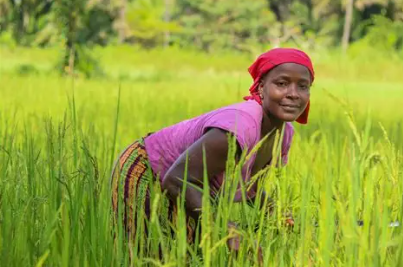Freetown, 1st September 2025– In a year marked by inflationary pressures and rising food insecurity, the World Food Programme (WFP) has delivered a targeted economic boost to Sierra Leone’s agricultural sector, injecting over USD 840,000 into rural communities through its expanded Home-Grown School Feeding Programme.
According to the WFP Sierra Leone Annual Country Report 2024, the agency facilitated the procurement of 616 metric tons of locally grown rice and 400 metric tons of pulses, directly benefiting 12,500 smallholder farming households. The initiative not only stimulated local food production but also improved the nutritional intake of 81,895 schoolchildren across the country, aligning closely with the government’s Feed Salone agenda.
The USD 840,000 disbursed through local procurement represents a significant injection into Sierra Leone’s rural economy, where farming households often operate on thin margins and face limited access to formal markets. On average, each participating household earned approximately USD 67.20 from the program an amount that, while modest, provided critical liquidity during a period of rising input costs and volatile food prices.
Beyond direct payments, WFP’s technical support enabled farmers to adopt climate-smart agricultural practices, improve post-harvest management, and access new market channels. These interventions are designed to build long-term resilience in local food systems, reducing dependency on imported staples and external aid.
Despite these gains, macroeconomic headwinds persist. The abolition of rice subsidies and elevated transport costs continued to drive up staple food prices in 2024, eroding household purchasing power. While inflation showed signs of easing toward year-end, dropping from 38.1% in 2023 to 20.8% in 2024 the cost of living remains high, particularly for urban and peri-urban families.
The WFP’s localized procurement model offers a counterweight to these pressures by anchoring demand in domestic production and shortening supply chains. However, experts warn that without broader reforms in logistics, input financing, and market regulation, the gains may be difficult to sustain.
The Home-Grown School Feeding Programme is a cornerstone of the Feed Salone initiative, which aims to transform Sierra Leone’s food economy through increased local production, improved nutrition, and reduced import dependency. By linking school meals to local agriculture, the program creates a closed-loop system that benefits both producers and.
With over 81,000 children receiving locally sourced meals, the program also contributes to human capital development, ensuring that nutrition supports consumers learning outcomes and long-term productivity.









